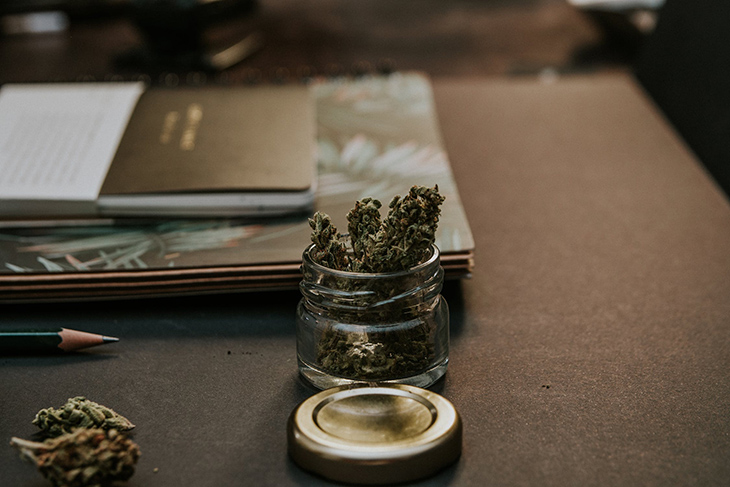
In 1996, California marked a historic milestone by becoming the first state of legalize medical marijuana. Fast forward to today, and the use of cannabis for medical purposes is now sanctioned in 38 states, three territories, and Washington, D.C.
All over America, more and more states have been legalizing the use of marijuana, with a noticeable rise of people reporting that they possess a doctor’s authorization to use cannabis. Over the past decade, this number has doubled, going from 1.2 percent in 2013 to 2.5 percent in 2020.
However, for postdoctoral research fellow at Swinburne University of Technology in Melbourne, Australia, Dr. Thomas Arkell, he shares that when it comes to clinical evidence supporting the effectiveness of the active components of medical marijuana, namely THC and CBD, it is still in the early stages of exploration.
Dr. Arkell, who coauthored a new study on cannabis use and health-related quality of life, published on May 9, 2023, in JAMA Network Open, said, “We do need to build a stronger evidence base around what sort of THC and CBD doses are most efficacious for certain conditions, what forms of administration work best, and what the reasons are for some patients discontinuing treatment because of a lack of symptom improvement.”
According to Dr. Arkell, the study is “perhaps the largest study of its kind.” What he found was that medical cannabis showed significant improvements over a large range of quality-of-life measures, which included both physical and emotional health.
Using Medical Cannabis for Chronic Pain
Researchers analyzed data from 3,148 patients for the study. From this number, 54 percent were female, 30 percent were employed, and their average age was 56 years.
Around two-thirds of the subjects were using cannabis for the treatment of chronic noncancer pain. 6 percent were using it for cancer pain, 5 percent for insomnia, and another 4.2 percent for anxiety.
The research used a standardized questionnaire, normally used in studies to assess health-related quality of life concerning individuals with chronic health conditions, as seen in previous research. This questionnaire included inquiries regarding overall health, limitations of activities, physical health problems, emotional health problems, pain, energy, emotions, and social activities. The assessment comprises eight distinct domains, each yielding a scaled score ranging from 0 to 100. A lower score signifies a higher degree of impairment or disability.
Study Results Show ‘Genuine Improvement’ with Medical Cannabis Use
Following the initiation of medical cannabis treatment, patients noted substantial enhancements compared to their initial baseline assessments across all eight questionnaire domains. The authors also observed that these improvements were generally maintained over time.
Upon accounting for potential influencing factors, such as the patient’s use of other medications, the presence of comorbid conditions, age, gender, and employment status, it was established that medical cannabis treatment correlated with a notable improvement ranging from approximately 6 to 18 points, depending on the specific domain being considered.
“Prescribed medical cannabis use does seem to be associated with long-term gains in a range of different health-related quality of life measures. This suggests a genuine improvement in physical and mental health and day-to-day function, which is critical for patients with chronic illnesses,” said Dr. Arkell.
Access to Medical Marijuana Varies Between the U.S. and Australia
Cannabis prescriptions were mostly given for orally administered products, such as oils and capsules.
Dr. Arkell shared, “It is important to note that there are big differences in how medical cannabis is obtained by patients in Australia versus the U.S.”
As explained by Dr. Arkell, in Australia, getting a prescription for medical marijuana is very much like getting a regular medication prescription, where doctors prescribe a specific dose and product that is picked up from a pharmacy. Meanwhile, in the United States, people must first qualify for a medical marijuana card which they can use at a dispensary to buy whatever strain they want using their medical cannabis license.
“This means the physician has much more control in Australia over the product type, THC dose, and frequency of use, all of which may translate into better clinical outcomes,” he said.
There Are Unwanted Side Effects to Medical Marijuana As Well
During the study, there was a total of 2,929 adverse – or unwanted – events that were reported, 86 of which were severe, including 2 that were considered serious in nature.
“Adverse events were common, which means we do need to be conscious of the risks of THC prescribing and possible side effects. These risks need to be weighed up in the context of what other medications a patient is already using and may dictate what is the maximum THC a patient should be using,” says Arkell.
Most adverse events were common and fleeting side effects of THC (the component in marijuana that leads to a “high”), and very few were serious, he added.
Benefits of Medical Marijuana Exaggerated by Study Design
Professor of psychiatry and behavioral sciences at Stanford University in Palo Alto, California, Keith Humphreys, PhD, who was not involved in the study, shared that the design of the study was flawed in two ways.
Dr. Humphreys clarified, “The first way is that the study left out all the people who started on the product and then didn’t come back. Even in their most successful follow up, less than half the people came back.”
He explained that what the results show is that a big portion of the participants “removed themselves” from the study by not coming back. In addition, there was no follow up with them either.
“That can give the illusion of, ‘Wow, these people really got better.’ But for a study of any treatment, if you take out all the people who didn’t respond or have a positive experience, that data can look really good,” he said.
Humphreys also pointed out that the other problem with this study is one that the authors acknowledge how there was no placebo control. “So we see people using the product and the subset that are left in the study say they feel better, but they might have felt better if we gave them a sugar pill. There’s no way to tell because there was no comparator group,” he said.
“There really isn’t much good evidence about whether medical marijuana improves health-related quality of life, and because of the flaws in this study, this doesn’t add new information,” said Dr. Humphreys.
Multiple authors revealed financial associations with pharmaceutical and cannabis sectors, and the data gathering and research were financially supported by a profit-driven company engaged in the sale of medical cannabis products.



